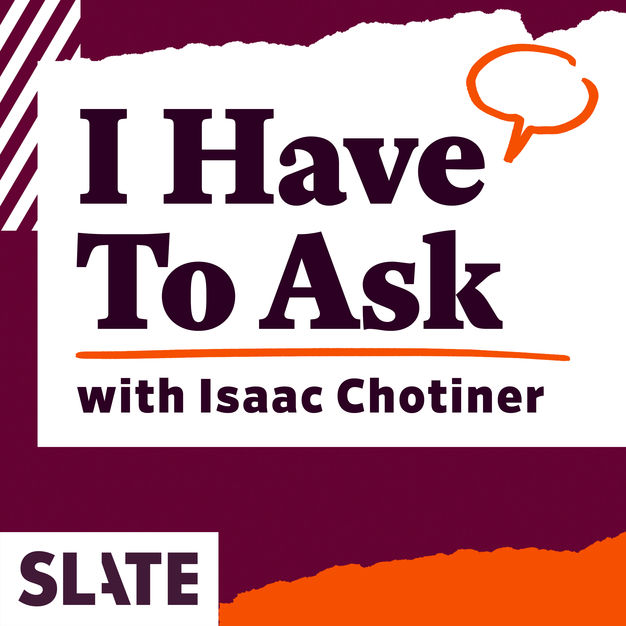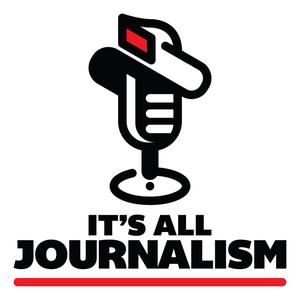
The Kicker
Columbia Journalism Review
Columbia Journalism Review's mission is to encour…
- 1 hour 3 minutesThe Unraveling of Ozy Media: Episode 3: The Verdict and the Pain
In the finale, Carlos Watson takes the stand—and the jury reaches a verdict.
“The Unraveling of Ozy Media” is a special three-part series of The Kicker, on the trial of Carlos Watson and the excesses of the digital media age, presented by the Columbia Journalism Review.
Hosted and coproduced by Josh Hersh and Susie Banikarim
Produced and edited by Amanda Darrach12 December 2024, 1:00 pm - 53 minutes 13 secondsThe Unraveling of Ozy Media: Episode 2: Built on a Bluff
How inflating traffic data went mainstream in digital media—and a key witness takes the stand.
“The Unraveling of Ozy Media” is a special three-part series of The Kicker, on the trial of Carlos Watson and the excesses of the digital media age, presented by the Columbia Journalism Review.Hosted and coproduced by Josh Hersh and Susie Banikarim
Produced and edited by Amanda Darrach10 December 2024, 12:00 pm - 42 minutes 59 secondsThe Unraveling of Ozy Media: Episode 1: Truth and Mythmaking
Carlos Watson’s media startup arrives on the scene—and insiders reveal a dark reality under its glossy veneer.
“The Unraveling of Ozy Media” is a special three-part series of The Kicker, on the trial of Carlos Watson and the excesses of the digital media age, presented by the Columbia Journalism Review.
Hosted and coproduced by Josh Hersh and Susie Banikarim
Produced and edited by Amanda Darrach9 December 2024, 12:00 pm - 2 minutes 16 secondsComing Soon: The Unraveling of Ozy Media
Starting on December 9, the Columbia Journalism Review presents a special three-part series of The Kicker: “The Unraveling of Ozy Media,” on the dramatic rise and fall of Carlos Watson, the cofounder of the digital media company Ozy. In 2023, Watson was charged with fraud after it was revealed that one of his partners had masqueraded as a YouTube executive, during a call with potential investors.
But Ozy’s failure is about more than one man. It’s a story about an era of profligate growth and overpromises in digital media that have left many wondering whether there’s any business model that will work for journalism today.
Join hosts Josh Hersh and Susie Banikarim as they follow Watson’s trial and ask how much of digital media was built on a lie.
5 December 2024, 6:00 pm - 28 minutes 29 secondsHow Trump Won the Latino Vote: A Deep Dive with CJR Contributor Jack Herrera
Nearly half of all Latino voters put their support behind former president Donald Trump this week, according to exit polls—a 14 percent increase from 2020.
Those results surprised many, but not Jack Herrera, who has been reporting on the shifting voting habits of Latino communities across the country for years.
Herrera joins The Kicker to talk about what he’s learned from his journalism in Pennsylvania, Iowa, and the border counties of Texas.
Read More:
Herrera’s article for CJR’s Election Issue on Lorena López, the editor of Iowa’s La Prensa
Herrera’s 2024 reporting on Latino voting in Pennsylvania, Texas, and Iowa
8 November 2024, 4:00 pm - 24 minutes 22 secondsMartin Baron on Jeff Bezos, the Post, and the role of presidential endorsements
Martin Baron was the executive editor of the Washington Post from 2013 until his retirement, in 2021—which meant he was there for the arrival of Amazon founder Jeff Bezos as owner and publisher of the paper.
He’s long praised Bezos for taking a firm line against any interference with the paper’s journalism, but Bezos’s sudden decision, announced last week, to torpedo the paper’s planned endorsement of Kamala Harris was a bridge too far. In a post on X, Baron described the move as an act of “cowardice” and “spinelessness.”
Baron joins The Kicker to speak about his intense reaction to the decision, what he thinks has changed with Bezos—and whether it might be time for papers to retire the presidential endorsement anyway.
Read more:Baron’s original statement on the Post’s decision
Bezos’s op-ed explaining why he pushed to deep-six the endorsement
A Post news team article investigating the ties Bezos’s companies have to the government—and to a potential second Trump administration
Hosted by Josh Hersh
Produced by Amanda Darrach31 October 2024, 12:00 am - 33 minutes 21 secondsHow Trump’s team could craft ‘the narrative’ after the election: NBC’s Ryan Reilly on 2020, and the road ahead
The so-called Big Lie—that the 2020 election was stolen out from under Donald Trump—was more than just a series of individual false facts and misleading videos. It was a narrative, carefully constructed by people affiliated with the Trump campaign, and disseminated through friendly news outlets and social media channels.
Four years later, that story still convinces millions of Trump’s supporters. And as NBC’s Ryan Reilly has reported, it’s one that many people on the former president’s team are already laying the groundwork to repeat this time.
Reilly joins The Kicker to discuss how those stories spread, and why many in the media are better prepared to combat them—while others, including some prominent social media platforms, are poised to make things worse.
Read more:Ryan’s NBC News article on the 2020 effort to “stop the vote” in Detroit
Ryan’s book Sedition Hunters: How January 6th Broke the Justice System
New York Magazine on the DC jail block run by convicted January 6 rioters
Politico on how Trump might try to claim victory no matter what
Hosted by Josh Hersh
Produced by Amanda Darrach
Episode website25 October 2024, 5:00 pm - 26 minutes 16 secondsHell Gate's Chris Robbins on a manic news cycle in New York
New York City is the media capital of the world, but the number of people and outlets covering the city locally has taken a hit recently. Over the past few years, the Wall Street Journal dropped its independent metro section, the New York Times announced it would stop endorsing local races, and the all-news radio station WCBS went off the air.
But a number of scrappy upstarts have started filling the void. The City, a digital news nonprofit, has led some of the best coverage of the ongoing scandals in the administration of Mayor Eric Adams. And Hell Gate, a year-old digital publication, is providing a fresh, voicey take on news and culture.
Today’s guest is Christopher Robbins, an editor and cofounder of Hell Gate, on the state of news in New York, the latest (at least as of our conversation) fallout from the Adams administration, and how he hopes to keep Hell Gate around for a while.Read more:
The Eric Adams Table of Success
Hosted by Josh Hersh
Produced by Emily Russell
9 October 2024, 7:00 pm - 39 minutes 19 secondsThe power of uncomfortable ideas: Jina Moore Ngarambe on her time at Guernica
In March, the digital literary magazine Guernica published a personal essay by a British Israeli writer and translator, about her experiences in the aftermath of the October 7 Hamas terror attacks.
It was raw and honest and painful to read. The writer, Joanna Chen, had spent years before the attacks and subsequent war on Gaza volunteering for an organization that transported Palestinian children into Israeli territory for medical care; after October 7, she found it hard to connect with the work.
After the piece was initially published, in March, a number of Guernica staffers—all of them volunteers—expressed outrage that the magazine had published an essay centered on the internal moral agonies of an Israeli, at a time when Palestinians were being brutally killed.
The publisher of Guernica pulled the essay; within a month, Jina Moore Ngarambe, the editor in chief, resigned.
Today on The Kicker: a conversation with Jina about what she learned from the experience, and why she believes so strongly in journalism’s responsibility to present uncomfortable perspectives.
Read more:
Joanna Chen’s essay, “From the edges of a broken world” (as republished by Washington Monthly)
Guernica founder Michael Archer’s explanation for why the essay was taken down
Jina’s interview with Semafor
Hosted by Josh Hersh
Produced by Amanda Darrach
Audio Mix by William Flynn
Episode website18 September 2024, 5:00 pm - 28 minutes 25 seconds‘That’s how you run a debate!’: 9News’s Kyle Clark on holding politicians accountable
In late May, Kyle Clark went viral after he moderated a debate featuring six Republican candidates for Colorado’s Fourth Congressional District, including Rep. Lauren Boebert.
He refused to allow the candidates to evade his direct questions with waffling, rambly answers, instead repeatedly cutting them off: “You didn’t make any attempt to answer the actual question,” he said at one point.
Over the next few weeks, his management of the debate was hailed by everyone from the Poynter Institute to Jimmy Kimmel, who told his national audience, “That’s how you run a debate, right there, like a drill sergeant!”
A few months on, Clark has mixed feelings about all the social media fanfare—but he’s happy that his no-nonsense approach to interviewing politicians has caught on.
He joins The Kicker ahead of the upcoming presidential debate, between Donald Trump and Kamala Harris, to talk about the importance of the media calling out falsehoods, and why local news is central to restoring public trust in the media.
Watch the full 9News debate, from May, here.
Hosted by Josh Hersh
Produced by Amanda Darrach
Research by Kevin Lind
Episode Website4 September 2024, 10:00 am - 22 minutes 25 secondsThe long, destructive path of fire: Talking to Source NM’s Patrick Lohmann about a never-ending wildfire season
In early 2023, Patrick Lohmann, a reporter for the nonprofit Source NM, moved to the small town of Las Vegas, New Mexico, to learn how residents were coping with the aftermath of the largest wildfire in state history.
What he learned there was that the destruction brought on by wildfires doesn’t end when the fire itself goes out. It can take years for people to extract benefits from the federal bureaucracy, and for communities to fully recover—if they ever do. Wildfires leave behind debris that can be swept up in devastating flash floods, and in many parts of the country, the “fire season” encompasses most of the year.
Pat spoke to The Kicker about the new reality of wildfires, and why all reporters living in fire-prone areas may eventually find themselves covering wildfires.
Read more of Patrick Lohmann’s reporting at Source NM
Patrick moved to Las Vegas, New Mexico to cover the aftermath of the Hermit's Peak/Calf Canyon Fire
How wildfires led to flash flooding in Ruidoso (NYT)
Hosted by Josh Hersh
Produced by Amanda Darrach
Research by Kevin Lind
Episode Website26 August 2024, 8:00 pm - More Episodes? Get the App
Your feedback is valuable to us. Should you encounter any bugs, glitches, lack of functionality or other problems, please email us on [email protected] or join Moon.FM Telegram Group where you can talk directly to the dev team who are happy to answer any queries.
 I Have to Ask
I Have to Ask
 The Breakthrough
The Breakthrough
 Columbia Journalism Review Podcast
Columbia Journalism Review Podcast
 It's All Journalism
It's All Journalism
 Live at Politics and Prose
Live at Politics and Prose
 IRE Radio Podcast
IRE Radio Podcast